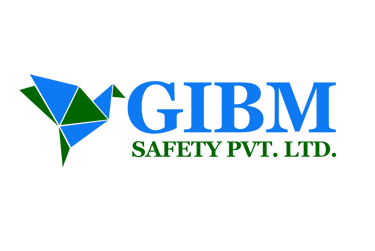Strategic Management: Building Competitive Advantage Through Strategic Thinking
In today's hyper-competitive business landscape, the ability to think and act strategically has become the defining characteristic that separates thriving organizations from those merely surviving.
BLOG
1/22/20245 min read


In today's hyper-competitive business landscape, the ability to think and act strategically has become the defining characteristic that separates thriving organizations from those merely surviving. Strategic management represents the art and science of creating sustainable competitive advantage through systematic planning, implementation, and evaluation of business strategies. Research from IIM Bangalore demonstrates that companies with strong strategic management capabilities achieve 35% higher financial performance and 28% better market positioning compared to those lacking strategic focus.
Strategic management education has evolved from theoretical academic concepts to practical frameworks that enable leaders to navigate complex business environments effectively. Modern strategic management programs equip professionals with analytical tools, strategic thinking methodologies, and implementation capabilities that drive organizational success in uncertain and rapidly changing markets.
The Evolution of Strategic Management Education
Contemporary strategic management training addresses the multifaceted nature of modern business competition, recognizing that sustainable success requires more than operational excellence. According to SCDL research, effective strategic management programs develop leaders capable of assessing internal operations, forecasting external trends, and crafting long-term strategies that drive sustainable growth.
The discipline encompasses competitive analysis, resource optimization, strategic planning, implementation management, and performance evaluation. These interconnected capabilities enable organizations to align their strengths with market opportunities while mitigating threats and addressing competitive challenges.
For mid-size companies, strategic management capabilities are particularly crucial because these organizations must compete effectively against both larger enterprises with greater resources and smaller competitors with superior agility. Strategic management training provides the analytical frameworks and decision-making tools needed to navigate this complex competitive landscape successfully.
Core Components of Strategic Management Excellence
Effective strategic management education integrates several critical competencies that collectively enable superior organizational performance. Environmental analysis forms the foundation, teaching leaders how to assess industry dynamics, competitive forces, technological trends, and regulatory changes that affect business opportunities and threats.
According to Copenhagen Business School research, strategic thinking capabilities enable leaders to synthesize complex information, identify patterns, and develop insights that inform superior strategic decisions. These cognitive skills are essential for navigating uncertainty and developing innovative approaches to competitive challenges.
Resource-based analysis teaches leaders how to evaluate organizational capabilities, identify distinctive competencies, and leverage internal strengths to create sustainable competitive advantages. This internal focus complements external analysis to provide comprehensive strategic insights.
Strategy formulation methodologies provide structured approaches for developing strategic options, evaluating alternatives, and selecting optimal strategies that align with organizational capabilities and market opportunities. These frameworks ensure that strategic decisions are based on rigorous analysis rather than intuition alone.
Implementation Excellence and Execution Capabilities
Strategic management education increasingly emphasizes implementation capabilities, recognizing that brilliant strategies fail without effective execution. Implementation training covers change management, organizational design, performance measurement, and leadership techniques that enable successful strategy execution.
Research from Emeritus indicates that organizations with strong implementation capabilities achieve 42% better strategy execution rates and 38% higher strategic objective attainment compared to those focusing primarily on strategy formulation.
Performance measurement and strategic control systems enable organizations to monitor progress, identify deviations, and make necessary adjustments to maintain strategic direction. These systems provide feedback mechanisms that support continuous strategy refinement and organizational learning.
Industry Applications and Sectoral Considerations
Strategic management principles apply across diverse industries, but effective implementation requires understanding sector-specific dynamics, competitive patterns, and success factors. Technology companies require strategic management approaches that address rapid innovation cycles, network effects, and platform economics.
Manufacturing organizations benefit from strategies that optimize operational efficiency, supply chain effectiveness, and quality management while building brand recognition and customer loyalty. Service companies need strategic approaches that leverage human capital, customer relationships, and service delivery excellence.
According to Harvard University research, financial services organizations require strategic management frameworks that address regulatory compliance, risk management, and digital transformation challenges while maintaining customer trust and competitive positioning.
Digital Transformation and Strategic Management
The digital revolution has fundamentally altered competitive dynamics across industries, requiring strategic management approaches that address technology integration, data analytics, and digital business models. Modern strategic management education incorporates digital transformation principles, helping leaders understand how technology affects competitive advantage creation and sustainability.
Digital platforms, artificial intelligence, and data analytics create new opportunities for competitive differentiation while simultaneously disrupting traditional business models. Strategic management training helps leaders navigate these changes effectively while identifying opportunities for digital innovation and transformation.
Global Strategic Management and Cross-Cultural Competence
Contemporary strategic management education addresses the global nature of modern competition, providing frameworks for international strategy development, cross-cultural management, and global value chain optimization. These capabilities are essential for organizations seeking growth through international expansion or competing against global competitors.
Research from edX demonstrates that leaders with global strategic management competencies achieve 30% better international market penetration and 25% superior cross-border partnership success rates compared to those lacking international strategic perspective.
Cultural intelligence and international business understanding enable leaders to adapt strategies effectively across different markets while maintaining strategic coherence and competitive advantage.
Innovation Strategy and Entrepreneurial Thinking
Strategic management education increasingly incorporates innovation strategy and entrepreneurial thinking methodologies that enable organizations to identify and capitalize on emerging opportunities. These capabilities are essential for maintaining competitive relevance in rapidly evolving markets.
Innovation strategy frameworks help leaders understand how to balance exploration of new opportunities with exploitation of existing capabilities. This balance is crucial for achieving both short-term performance and long-term sustainability.
Entrepreneurial thinking methodologies encourage strategic leaders to identify unmet customer needs, develop creative solutions, and build new business models that create value and competitive advantage.
Strategic Leadership Development
Effective strategic management requires leadership capabilities that enable successful strategy development and implementation. Strategic leadership development focuses on vision creation, stakeholder alignment, organizational culture building, and change leadership skills.
According to University of Virginia research, strategic leaders achieve 40% better organizational alignment and 35% superior strategy execution results compared to leaders lacking strategic management training.
These leadership capabilities enable strategic managers to inspire teams, build coalitions of support, and navigate organizational resistance while maintaining strategic focus and momentum.
Technology Integration and Learning Methodologies
Modern strategic management education leverages advanced learning technologies, including business simulations, case study platforms, and virtual reality environments, to create immersive learning experiences that closely mirror real-world strategic challenges.
These technologies enable participants to practice strategic decision-making, experience the consequences of strategic choices, and develop strategic thinking capabilities through experiential learning methodologies.
For companies operating in diverse markets like Goa, strategic management training must address local market dynamics while maintaining global strategic perspective. Organizations such as GIBM Pvt. Ltd. in Panjim have developed customer-tailored strategic management programs that balance global best practices with regional market understanding.
Measuring Strategic Management Effectiveness
Organizations investing in strategic management education must implement measurement systems that track both learning outcomes and business impact. Key performance indicators include strategic objective achievement, competitive positioning improvement, market share gains, and financial performance enhancement.
Long-term measures, including strategic capability development, organizational agility improvement, and innovation capacity enhancement, provide insights into sustainable competitive advantage creation.
Future Trends and Emerging Practices
The future of strategic management education will continue evolving in response to changing business environments and technological advancement. Artificial intelligence, predictive analytics, and real-time data integration are becoming integral components of strategic management practice.
Sustainability strategy, stakeholder capitalism, and purpose-driven strategy development represent emerging areas that require integration into strategic management curricula to address evolving societal expectations and business requirements.
Building Strategic Management Capability
Organizations seeking to build strategic management capabilities should implement comprehensive development programs that combine formal education with practical application opportunities. This includes strategic planning exercises, competitive analysis projects, and strategic review processes that reinforce learning while delivering business value.
Communities of practice, mentorship programs, and ongoing strategic dialogue forums help maintain and enhance strategic thinking capabilities while building organizational strategic intelligence.
Conclusion
Strategic management education represents a fundamental investment in organizational capability that enables sustainable competitive advantage creation and maintenance. As business environments become increasingly complex and competitive, the ability to think and act strategically becomes essential for organizational survival and success.
Companies that prioritize strategic management development position themselves to navigate uncertainty effectively while identifying and capitalizing on opportunities that drive long-term growth and profitability. The evidence overwhelmingly supports strategic management education as a critical factor in organizational success and competitive advantage creation.
" Building Industry Excellence. "
Contact Us
helpdesk@gibmsafety.com
+91 9136088864
© 2025. All rights reserved.


helpdesk@rfiresafety.com
Conversation
